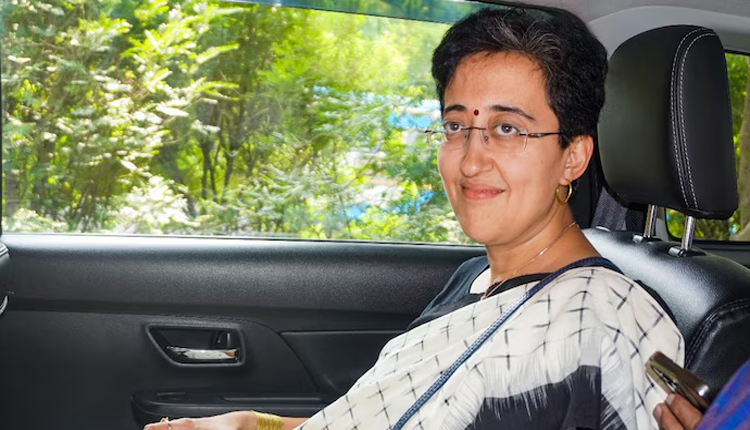New Delhi: The Aam Aadmi Party (AAP) has officially appointed Atishi as the Chief Minister of Delhi, marking a significant step in the party’s leadership transition. Alongside Atishi, the party has finalized the names of five ministers who will take oath on September 21, with one ministerial post intentionally left vacant.
The newly formed cabinet includes Gopal Rai, Saurabh Bhardwaj, Kailash Gehlot, Imran Hussain, and Mukesh Ahlawat. Except for Mukesh Ahlawat, the remaining four ministers have previously served in the Arvind Kejriwal government, underscoring continuity within the party’s administration. Mukesh Ahlawat has been brought into the cabinet under the Dalit quota, representing AAP’s commitment to inclusive governance. Ahlawat’s inclusion is seen as a strategic move to strengthen the party’s presence in North-West Delhi, a Dalit-dominated region comprising ten assembly seats, three of which are reserved for Dalits.
In the 2020 Delhi Assembly elections, AAP secured nine out of ten seats in North-West Delhi. However, the party faced a setback in the 2024 Lok Sabha elections, winning only one seat—Sultanpur Majra—out of the ten contested. By appointing Mukesh Ahlawat, AAP aims to reclaim influence in this critical area and address the electoral losses experienced recently.
Of the five ministers named, four were part of the previous Kejriwal cabinet, signalling a blend of experienced leadership and new appointments. AAP has decided to leave one ministerial post vacant for two primary reasons. Firstly, the party intends to project an image of efficient governance by maintaining a lean cabinet, thereby conveying that more can be achieved with fewer resources. Secondly, internal party dynamics played a role, as several close contenders, including Vishesh Ravi, Durgesh Pathak, Somnath Bharti, Sanjeev Jha, and Jarnail Singh, vied for the vacant position. By leaving the seat open, AAP preserves the possibility of future appointments without marginalizing any of the close candidates.
Atishi, upon her nomination as Chief Minister, emphasized the party’s strategic focus on reinstating Arvind Kejriwal as the party leader. She stated, “Our goal is to make Kejriwal the Chief Minister again. His temporary departure was due to legal challenges and personal setbacks, but we are committed to justice for him and his leadership.”
AAP plans to make the issue of justice for Kejriwal a central theme in the upcoming Delhi Assembly elections, scheduled to be held four months from now. In a recent party event, Kejriwal reiterated the importance of voters deciding based on his honesty, stating, “Vote on one question – is Kejriwal honest or not?”
The Delhi Assembly comprises 70 seats, and with the government including seven members (including the Chief Minister), six have already been appointed to the Atishi cabinet. The seventh post remains vacant, allowing AAP to demonstrate both governance efficiency and internal unity.
The oath-taking ceremony is set for September 21, following Atishi’s claim to form the government on September 17. Lieutenant Governor VK Saxena has forwarded the necessary documentation to the Ministry of Home Affairs and the President to facilitate the formation of the new cabinet. Post-ceremony, the distribution of departmental portfolios will be undertaken, with significant focus expected on education and finance—key areas that were previously managed by Manish Sisodia and Atishi in the Kejriwal administration.
As Atishi steps into her role as Chief Minister, questions remain regarding the division of responsibilities between her and the appointed ministers. Historically, Arvind Kejriwal has not held any departmental portfolios, choosing instead to oversee the government’s functions from the Chief Minister’s office. It is anticipated that a similar approach may be adopted under Atishi’s leadership, ensuring streamlined governance while allowing ministers to manage their respective departments effectively.
The formation of the new cabinet is seen as a strategic move by AAP to maintain stability and continuity in Delhi’s governance while also addressing recent electoral challenges. As the party prepares for the forthcoming elections, the effectiveness of Atishi’s leadership and the newly appointed ministers will be closely watched by both supporters and opponents alike.



Comments are closed.